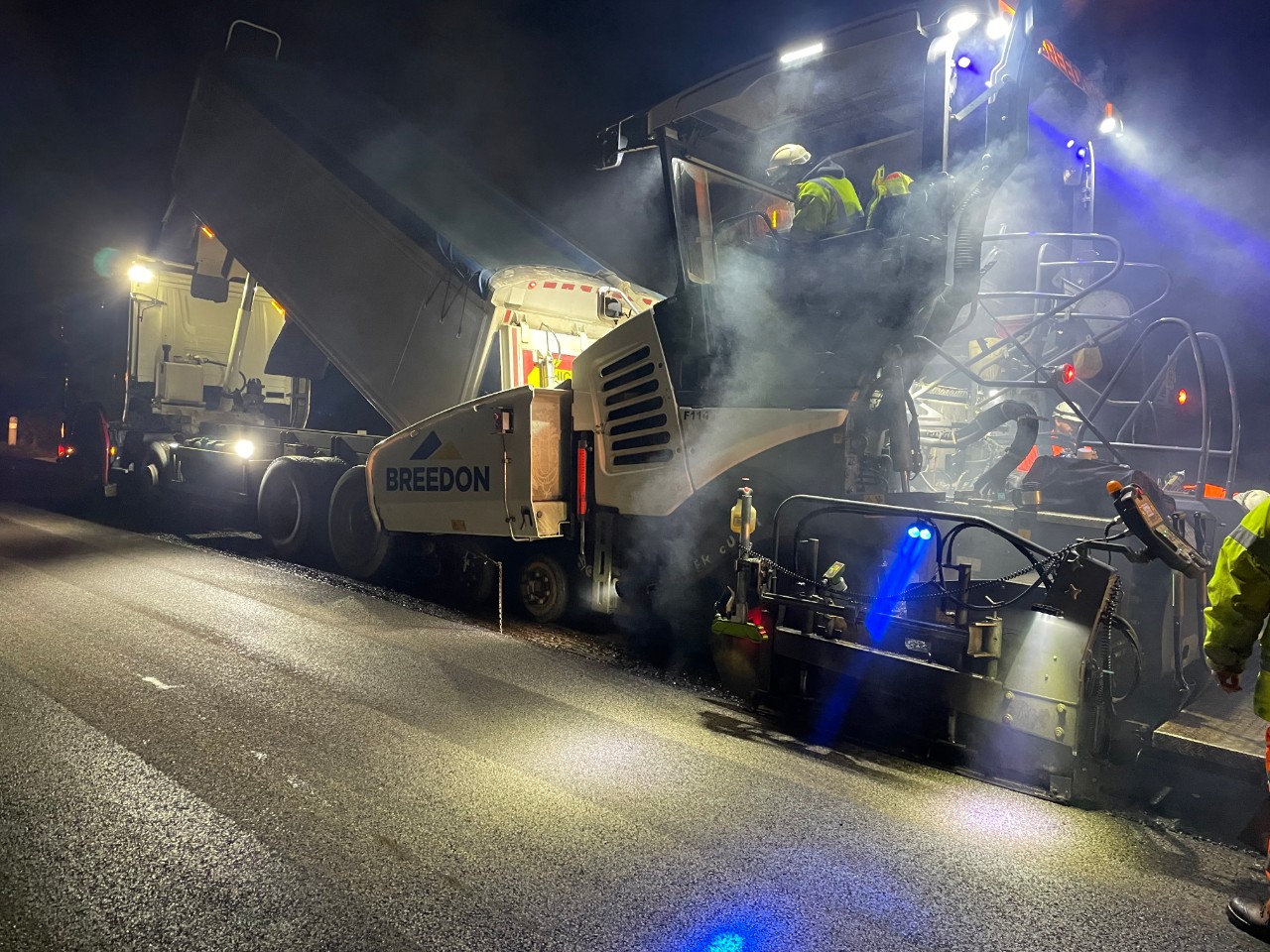Share price:
A Scottish first for Breedon
Transport Scotland is responsible for the delivery of the Scottish government’s vision for transport, from network infrastructure, to accessibility and sustainability. Their aim is to reduce carbon emissions by 75% by the year 2030.
Challenges
Prior to working with Breedon in January, there had been no low carbon asphalt installations across Scotland. Breedon approached Transport Scotland (and Amey, term contractors for the North East) about a trial across the Scottish network, having completed a successful trial of a new, low-carbon asphalt in England. This was made possible by incorporating a bitumen containing a biogenic component.
Our plan
Breedon presented Transport Scotland and Amey with an opportunity to trial a new, low carbon SMA technology, in accordance with TS2010 surface course specification and guidance.
Taking action
Breedon carried out a full laboratory evaluation of its TS2010 material, using Nypol RE 103. The Nypol RE range from Nynas includes a biogenic component, which substantially reduces the carbon footprint of polymer modified bitumen, when compared to a normal polymer binder.
Results were presented to Transport Scotland, to demonstrate this new technology as a catalyst for reducing carbon emissions across the country. Feedback was overwhelmingly positive, leading to a successful rollout of the product.

The results
The new low carbon asphalt, part of the new Breedon Balance range of materials, was successfully installed on the Scottish network at the end of January.
This is the first time an asphalt containing biogenic materials has been used on the Scottish network, marking a historic achievement and paving the way for a future incorporating low-carbon transport.
#BALANCE CRITERIA